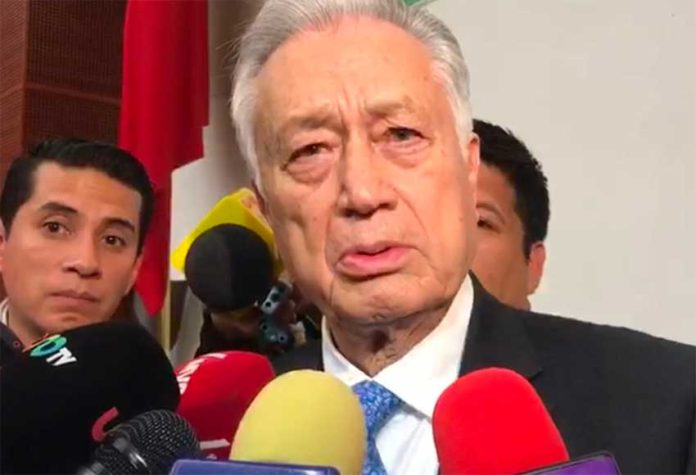The next director of the Federal Electricity Commission (CFE) plans to review power prices but will not seek to dismantle the 2013 energy reforms.
“We’re going to respect the law as it is; what we’re going to seek is for the commission to really compete, if they don’t let it compete, [electricity] rates go up. If it buys electricity and doesn’t generate [power], how is it going to compete?” Manuel Bartlett told reporters yesterday.
He explained that the Andrés Manuel López Obrador-led government would also seek to introduce “social rates” that could see people on low incomes obtain government subsidies to offset their electricity costs.
Bartlett said that lower rates would also be extended to the industrial sector and that a price review would focus particularly on states with hotter climates where people complain most about high electricity prices and, in some cases, refuse to pay.
“The market doesn’t pay much attention to that but we will,” he said.
López Obrador said earlier this week that his government will cancel debts owed to the CFE by people in “civil resistance” against the public utility.
In an interview with the newspaper El Universal, Bartlett responded to criticism about his appointment to head the CFE, which has included a plea from the Mexican Employers Federation (Coparmex) to the president-elect to reconsider his choice and a comment from López Obrador’s campaign manager, Tatiana Clouthier, that there were better people for the job.
“They say that I don’t have the [right] profile, that [the head of the CFE] should be an electrician, a technician, but if you look at who the directors of big companies are, it’s the other way around,” he said.
“The heads of big electric companies are not electricians . . . private businessmen lead them.”
He added that he didn’t appoint himself but was appointed by López Obrador, who has emphasized that Bartlett has been defending the national electrical industry for more than 15 years.
Asked whether he would consider relinquishing the appointment, the 82-year-old former governor of Puebla and federal interior secretary said that such a move would only serve to satisfy Coparmex and his other critics before deriding the idea as illogical.
Bartlett said the first thing to do at the CFE — Mexico’s second most powerful state-owned company after Pemex — will be to establish “why it lost 40 billion pesos (US $2.1 billion) in six months, why it has a growing debt, why it doesn’t generate electricity . . . and why it’s raising rates instead of lowering them.”
He also said that identifying corruption within the company, for which he charged the federal government has awarded it a “gold medal,” will be a priority, adding that all current contracts the CFE has signed will be reviewed.
Bartlett has been an outspoken critic of the energy reform introduced by the current federal government. It opened up the sector to private and foreign companies, ending a 75-year-long state monopoly.
He told El Universal that he saw himself as a “nationalist,” adding “obviously I’m not a neoliberal.”
However, he rejected that he was a dinosaur, a disparaging term in Mexican politics used to describe old-fashioned leaders from the Institutional Revolutionary Party (PRI), which long dominated the political landscape but suffered a crushing defeat at the July 1 elections.
Source: Milenio (sp), El Universal (sp)
